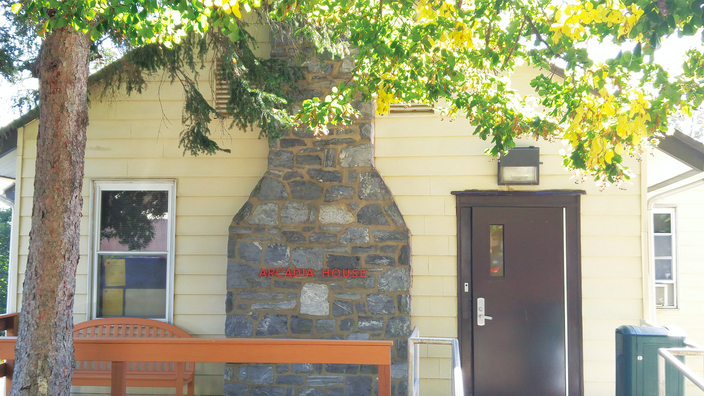
October 25, 2016
In the midst of a deepening community health crisis, a Montgomery County hospital will soon launch a unique heroin and opioid addiction treatment program specially designed for young men between the ages of 18 and 26.
Eagleville Hospital, an independent nonprofit facility that treats a variety of mental and behavioral health conditions, will dedicate the Arcadia House at a ceremony Wednesday morning alongside officials from the Montgomery County Department of Human Services.
Maureen Pollock, CEO of Eagleville Hospital, said a $600,000 reinvestment grant from the county stemmed from a response to a matter of growing urgency.
"There's such an overwhelming need for this 18- to 26-year-old group," Pollock told PhillyVoice, explaining that the number of men to come forward for treatment has outpaced capacity since Gov. Tom Wolf signed the state's Medicaid expansion last year. "We didn't know this population would surface, but many are unemployed or working part-time and don't have health insurance."
During a meeting with county officials about the hospital's pending capital facility plan, Pollock pointed out a plot of land that was free for use on the tranquil, 40-acre wooded campus. The hospital currently has 289 beds and they are all occupied.
"I told them we could put up a modular unit and rapidly get the program up and running," Pollock said. "They supported the foundation of a program dedicated to young males."
Arcadia House at Eagleville Hospital.
"It's a great way to do something small and targeted," said Pollock, who has been with Eagleville Hospital for a decade. "It's also in line with a form of education that will appeal to this younger group."
Last month, Montgomery County District Attorney Kevin Steele issued an alarming set of statistics on the sudden rise of heroin and opioid-related overdoses in 2016. Through July 24, there had been 260 overdoses and 85 deaths, already exceeding totals in 2015, when 187 people overdosed and 71 people died.
Nationally, statistics from the Drug Enforcement Administration found a 23.4 percent year-to-year increase in drug-related deaths in Pennsylvania in 2015. Among those deaths, the appearance of heroin or at least one other opioid was reported in about 81 percent of cases.
In the past two years, county officials have taken significant steps to address the problem.
"In 2014, we launched an overdose task force because it was becoming very clear to us that we had an increasing problem," said Dr. Valerie Arkoosh, Vice Chair of the Montgomery County Board of Commissioners and Interim Medical Director of the Montgomery County Health Department. "We have worked very hard to break down traditional silos between departments and organizations."
Public safety officials, law enforcement officers, treatment specialists, educators and community members have all been enlisted in the effort. Naloxone, the overdose antidote marketed as Narcan, is now carried by 33 out of the county's 49 police departments and all EMS units. A countywide standing order issued in 2015 makes naloxone available at participating pharmacies without any prior authorization.
"We know that you have to be alive to get treatment," Arkoosh said, adding that the county's Warm Handoff program sends recovering addicts to emergency rooms to convince patients who have survived overdoses to enter treatment immediately.
The county also administers 32 take back boxes where patients with opioid prescriptions can safely return pills when they are no longer needed.
"Addiction is a chronic disease and it needs to be treated like a chronic disease," Arkoosh said, "just like diabetes and hypertension. It takes multiple stakeholders to get on top of someone with an addiction and help them to their recovery. It's not a quick fix. In Montgomery County, we are committed to helping people get the recovery resources they need."
Arcadia House, Arkoosh said, will address a shortage of treatment beds for younger men who presently need them the most.
In the coming months, Eagleville Hospital will also embark on a plan to fund the repair of old facilities and an addition to its pavilion that will include a crisis stabilization unit, a patient welcome center and 80 new beds.
"Eagleville hospital has long served the underserved," Pollock said. "This program will stand out because of its collaboration with Montgomery County Community College and workforce development officials who will help get patients back on their feet."
Information about overdose prevention resources in Montgomery County can be accessed here.
 Source/Eagleville Hospital
Source/Eagleville Hospital